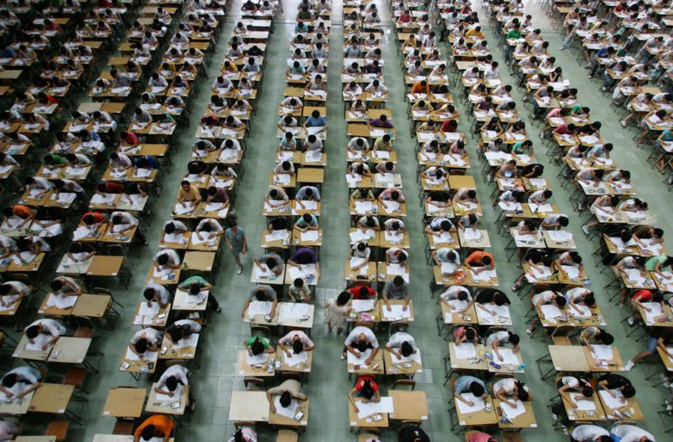SAT, an entrance exam to get into US universities and colleges, was cancelled this weekend at centers in China and Macau, following concerns that some students might have seen copies of the test in advance.
The SAT college board from New York disclosed on Thursday that the tests stand cancelled. Stacy Caldwell, the firm's vice president, confirmed the cancellation of the tests. Cardwell also said that 45 testing centers were affected, but the exact numbers of students not taking the test this weekend were not known. They will likely advise students to appear for a makeup exam, which will be scheduled in a month.
In China, SAT is administered primarily in international schools, where only a few students of Chinese nationality are enrolled. They generally appear for SAT in other countries, or in the Chinese territories of Macau and Hong Kong. Beijing-based education researcher and consultant Jiang Xueqin said that the issue is more complicated, and many international students were actually Chinese with a foreign passport.
The cancellations also mark a string of test security problems for the College Board and the Educational Testing Service, the non-profit organization that administers and holds the test. They did not disclose how many students have accessed the SAT test in advance, or how they breached the server, owing security concerns.
"We take test security very seriously. When we deliver a SAT score, that score is a fair and balanced score. When we see any sorts of reports of security incidents, we run them down," Zachary Goldberg, the College Board spokesman, reported.
An after-the-fact statistical analysis is being conducted by the college board to find test score patterns that suggest cheating, and may even lead to stringent identification from students, if imposters are found to have appeared for the test.



























